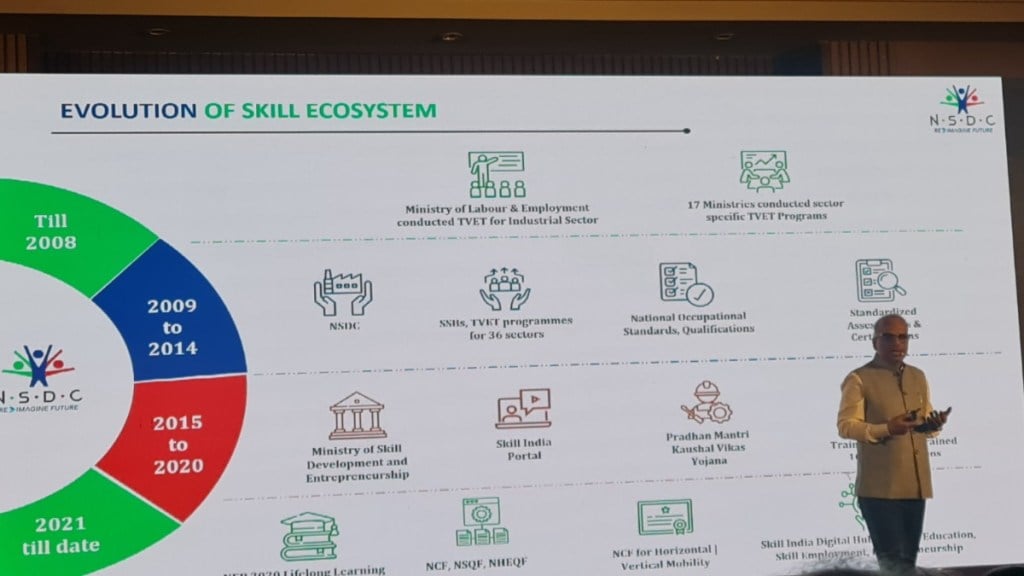“Artificial Intelligence or AI can never fully replace human intelligence. The reason is it trains on available data and all that data was created by humans. Humans are good at tackling things that have never been done before!” says Ved Mani Tiwari, CEO, National Skill Development Corporation (NSDC). He was speaking on the sidelines of a press conference to highlight the NSDC’s achievements in the past year.
He goes on to add: “AI is the dawn of an intelligence era, just like the steam engine was the dawn of the industrial era. We should not fear AI, but learn to utilise its capabilities.” Humans should continue a journey of discovery, while AI and robots can take care of the routine tasks. He added: “AI won’t take away jobs, instead it will change the nature of the job.”
The Economic Survey released in January 2025 highlighted a skill-set gap in the Indian workforce. The survey said that about 51% of Indian graduates are not employable because they lack the skills needed by current job demands. The survey also highlighted that only about 8.25% of graduates are employed in roles that match their qualifications, citing a need for more skill training.
Also read: Merger of skilling schemes to benefit more people: NSDC CEO
Need for Upskilling in India
Asked about how NSDC is addressing the skill-set gap in the Indian workforce, he said that NSDC’s skills portal – Skill India Digital Hub (SIDH) has helped reach out to tier 2 and tier 3 cities. The portal has 1.3 crore candidate registrations since it was set up in September 2023, with over 86 lakh candidates being trained through it. It has postings of over 10 lakh jobs and apprenticeships, which helps companies and candidates align the right skill sets. The portal has over 57 digital learning partners with 1,245 courses on offer.
Speaking about how NSDC is using digital technology to enhance skills, Tiwari pointed out how increasingly it is using Digital Assessments through “digital twins” or AR/VR technologies to assess skills before certification. He goes on to say that while earlier it was mainly blue-collar roles that were impacted by skilling requirements, now even white-collar jobs require new skilling with new technologies coming in.
Foreign jobs for Indians
Talking about the demand for skilled workforce from India, he said that Japan, Germany, Saudi Arabia and Israel are increasingly asking for skilled (certified) workforce from India, especially in the areas of construction and healthcare. Over 20,000 construction workers have been demanded by Israel and over 5,000 healthcare workers.
The mission for 2025 is to skill or upskill 25 million individuals, but the body has already onboarded 40.3 million, with 12.9 million coming from socio-economic disadvantaged groups. NSDC now has over 40,000 skilling centres with a target of 50,000 this year.
NSDC is also working with the private sector on the apprenticeship program. The National Apprenticeship Promotion Scheme (NAPS) has rolled out Rs 1,046 crore in grants, with Rs 28,893 crore coming from the private sector and industry. NSDC is also partnering with premium education institutions to make quality education accessible digitally to candidates in Tier 2 and Tier 3 cities. In the end, it’s all about matching skills and reskilling with job demands. “Automation will happen, no job can be done by humans alone in the future,” says Tiwari.

